7 Helpful Teething Tips for New Parents
-
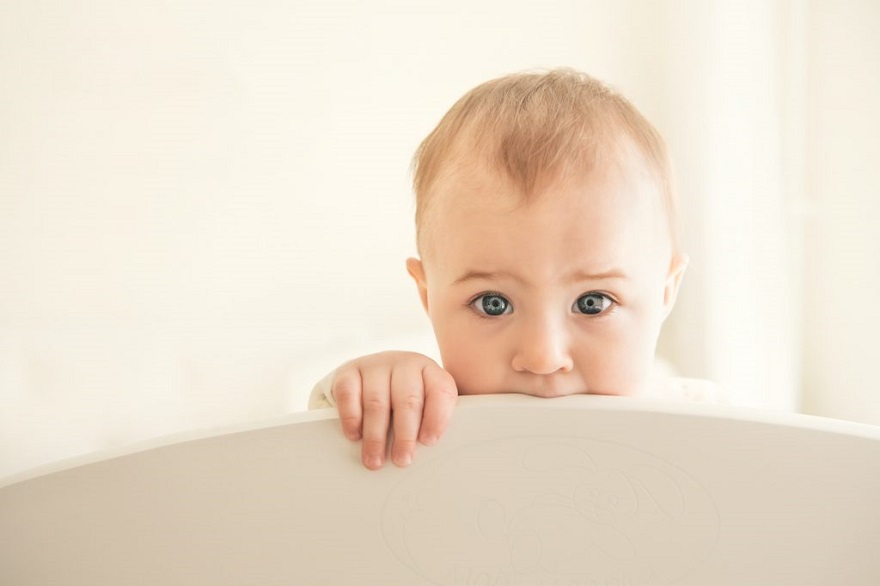
New parents face quite a learning curve when it comes to the health and development of their first child. This is particularly true of teething, when a child’s primary (or baby) teeth begin to come in. Technically called eruption, this process can cause your child great discomfort. As such, we thought it would be helpful to put together a tip sheet highlighting some of the most important things to keep in mind about teething.
Here are seven helpful teething tips for new parents:
-
1. Eruption Pattern
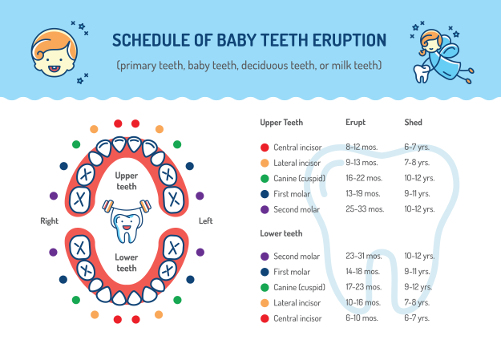
Tooth eruption typically begins around six months, though it can occur at any time between three and 12 months. In total, there will be 20 primary teeth that erupt, a process that may span two or three years.
The front teeth erupt first, typically starting with the bottom two incisors, followed by the upper central and lateral incisors. The bottom lateral incisors are the last of the front teeth to erupt, after which the molars and canines follow.
The timing and pattern of eruption can vary from child to child, but if eruption hasn’t occurred after 15 months, consult with your pediatrician or pediatric dentist.
The primary teeth remain in place until your child is five or six years old, after which they begin to fall out and get replaced by permanent teeth.
-
2. Normal Signs of Discomfort
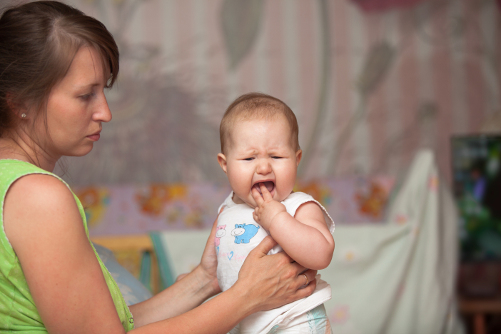
No parent wants to see their child experience any sort of distress, but, unfortunately, it’s an unavoidable part of teething. Knowing the normal signs of discomfort at least lets you know that there’s nothing serious causing your child distress. These typical signs include:
- Gum swelling and sensitivity
- Irritability
- Sleep problems
- Refusing to eat
- Constant rubbing of ears and cheeks
- Excessive drooling (this may cause an associated rash)
- Urge to bite on hard objects
In rare cases, teething may cause a low-grade fever. Although not necessarily a cause for alarm, this is something that should be shared with your pediatrician and/or pediatric dentist.
-
3. Alleviating the Symptoms
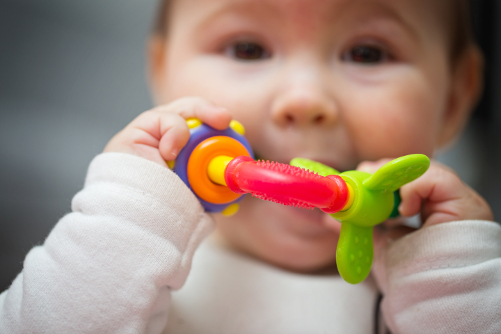
Although there is nothing you can do to stop the discomforts of teething, there are a number of things that you can do to help alleviate it.
- Let your child chew on a cold, wet cloth. (Be sure to wash the cloth after each use to rinse away any bacteria.)
- Massage the gums using a clean finger, a wet gauze pad or a chilled spoon.
- Clean drool as frequently as possible to prevent rash.
- Experiment with different teething toys for your child to chew.
- For children eating solids, select cold foods like applesauce, yogurt or pureed fruit that can soothe the mouth.
- You may give your child a very mild pain reliever, but only under the explicit guidance of your pediatrician.
-
4. What You Shouldn’t Do
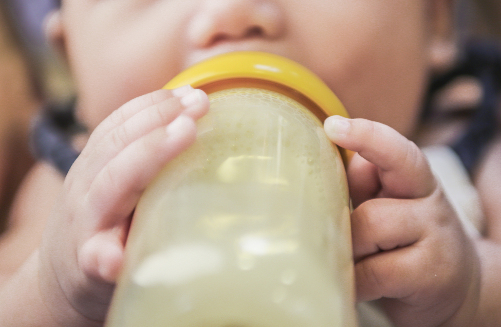
There are also a number of things you shouldn’t do:
- Do not let your child fall asleep with a baby bottle. This can lead to nursing bottle syndrome, rooted in dental plaque and decay.
- Do not use teething gels (numbing agents) to soothe sore gums. Topical gels contain things like benzocaine which is not good for children under the age of 2.
- Do not use gel-based teething toys. Erupting baby teeth can be sharp and capable of puncturing such toys, putting your child at risk of ingesting potentially harmful liquids.
- Do not use oddly sized toys. Too big and your child won’t be able to chew on all surfaces of the mouth (which is essential for promoting eruption). Too small and it becomes a swallowing hazard.
-
5. When to Contact Your Pediatrician

If you notice that your child’s teething symptoms worsen or seem severe, it’s imperative that you alert your pediatrician and/or pediatric dentist for an evaluation. Red flags are fever, frequent pulling on the ear(s), diarrhea, chronic coughing and diaper rash. These are not common teething symptoms and should be evaluated ASAP.
-
6. Eruption Cysts
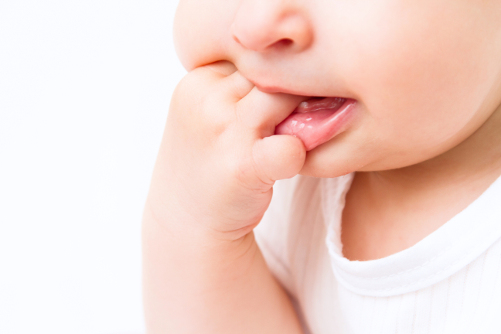
Once teeth begin to erupt, you may notice the development of small watery sacs known as eruption cysts. These are normal and perfectly harmless. As the tooth erupts it will eventually rupture the sac. Do not attempt to rupture it yourself.
-
7. Early Dental Care
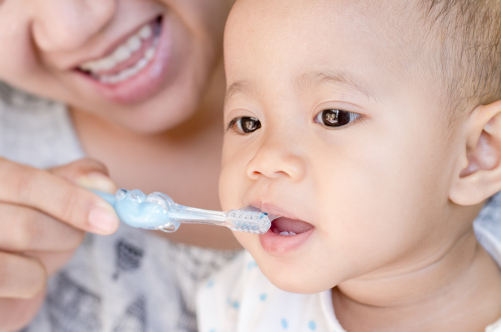
It’s never too early to start thinking about your child’s dental care. Even before the teeth erupt, you should get into the habit of cleaning the gums with a warm, soft cotton swap after meals. Once the teeth begin to erupt, you can begin brushing using a small, soft toothbrush. Do not use any sort of toothpaste product at this time. Simply brush with water.
Starting this routine early helps to foster a healthy dental hygiene habit.









